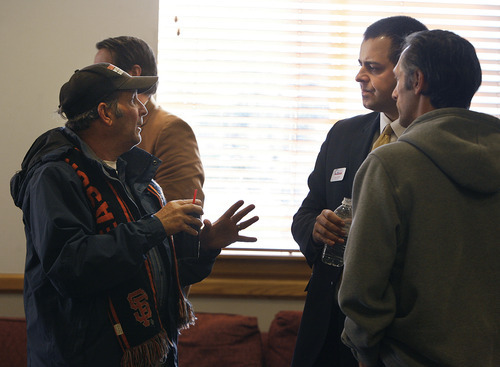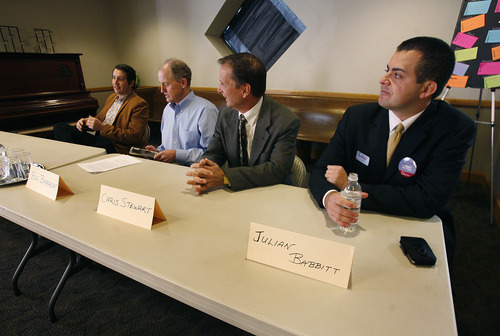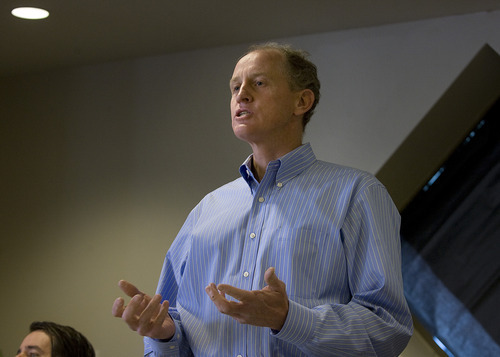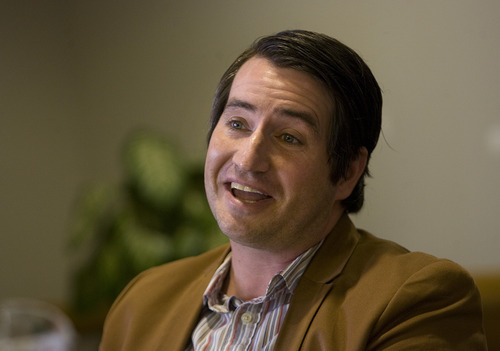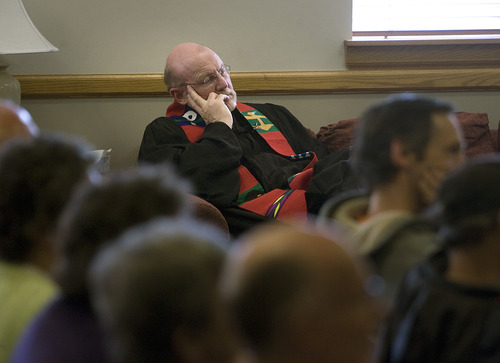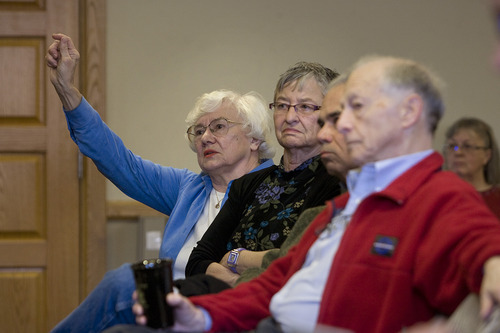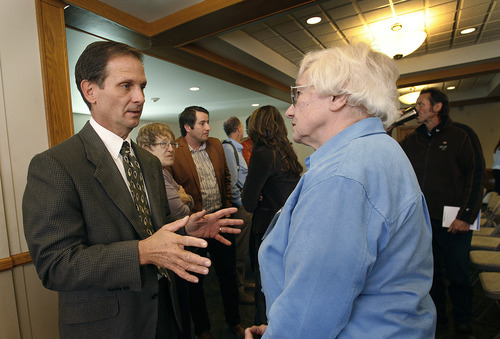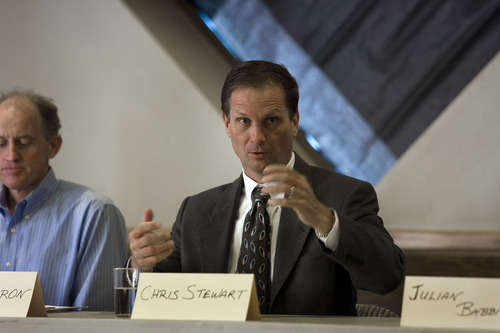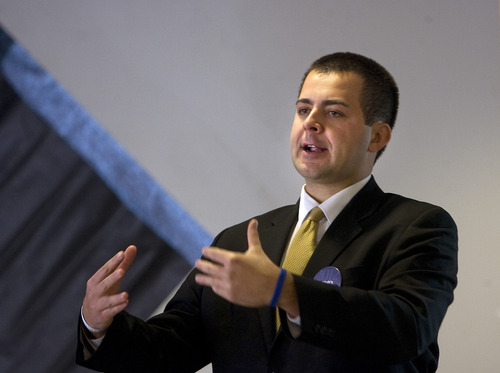This is an archived article that was published on sltrib.com in 2012, and information in the article may be outdated. It is provided only for personal research purposes and may not be reprinted.
Partisan rancor was nowhere to be seen Sunday during a forum for candidates seeking election to Utah's congressional seats, all of whom endorsed bipartisan cooperation.
But then this forum was conducted in between worship services at a Salt Lake City church.
"Partisan politics is having a detrimental effect on how we move the country forward. I want to address the issues from a human perspective rather than a party battle," said Bill Barron, an independent U.S. Senate candidate. He was addressing questions posed by about two-dozen voters gathered at Wasatch Presbyterian Church. The Salt Lake City carpenter is taking on six-term incumbent Orrin Hatch and Democratic challenger Scott Howell.
If elected, Republican U.S. House candidate Chris Stewart, an outspoken conservative, said he would be willing to compromise if it benefited the American people, but cautioned he harbors some positions on which he will not bend.
"I am pro-life," he said, adding nothing will ever persuade him to support a pro-choice position.
Stewart is opposing Democrat Jay Seegmiller of Sandy for Utah's massive 2nd congressional district. A railroad conductor, Seegmiller could not attend the forum because he was on a train somewhere near Winnemucca, Nev., campaign director Alan Seim said.
"Jay has some bipartisan ideas for moving forward," Seim said. "He is running on creating jobs, bringing jobs back from oversees."
The 2nd District race is perhaps the state's least visible, pitting two relative novices for the seat long held by Democrat Jim Matheson, now running for Utah's new 4th congressional district.
"Eighty percent of the voters will go to the polls thinking they are going to vote for either Jim Matheson or [Republican challenger] Mia Love," Stewart said, referring to their high-profile, money-soaked race. However, Stewart was content seeking office in a less-visible contest where candidates weren't obligated to raise millions in campaign contributions. He noted that he declined to sign Grover Norquist's no-new-tax pledge, which has become de rigueur among GOP candidates.
"I didn't want to go to Washington with my hands tied," said Stewart, a former Air Force pilot. "We won't owe anybody."
Utah's redrawn 2nd District spans most of the western half the state, from St. George to Salt Lake City's Rose Park, overlapping 14 of the state's 29 counties.
Barron's long-shot Senate bid champions carbon-limiting policies designed to slow global warming, a subject that has fallen off the political radar.
"Human-caused climate change is a human and moral issue," he said. Barron proposes eliminating all subsidies for fossil fuels and imposing a "carbon fee" as a way to encourage people to burn less petroleum, which emits the gasses implicated in global warming. Barron calculates a $15 fee per ton of carbon-dioxide emissions will increase the price of a gallon of gas by 13 cents. The revenue would be rebated to U.S. households, depending on their income.
Hatch's representative Julian Babbitt said the senator is not so eager to limit the energy industry's ability to innovate.
"What is being overlooked is the harmful impact some of these stringent regulations can have," Babbitt said. "We have to maintain a delicate balance between making sure we are good stewards of our resources, while we are not putting people out of work."
Although Hatch's chief rival was slated to speak Sunday, Howell failed to appear. His campaign has championed investments in renewable energy sources.


